Recent Blog Posts
How to Handle a Commercial Lease Violation
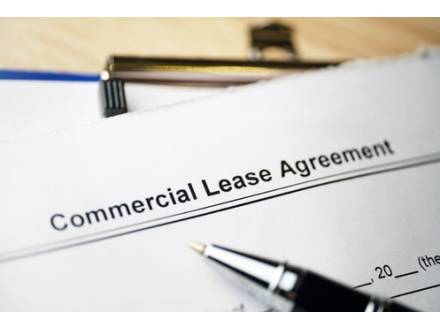 Commercial lease violations can be a significant headache for both landlords and tenants. Whether you are dealing with missed rent payments, unauthorized property alterations, or breaches of use restrictions, knowing how to handle these situations is crucial. An Illinois lawyer can walk you through the essential steps to address commercial lease violations effectively and protect your interests. To achieve the best potential outcome, it is beneficial to never try to navigate this type of case by yourself.
Commercial lease violations can be a significant headache for both landlords and tenants. Whether you are dealing with missed rent payments, unauthorized property alterations, or breaches of use restrictions, knowing how to handle these situations is crucial. An Illinois lawyer can walk you through the essential steps to address commercial lease violations effectively and protect your interests. To achieve the best potential outcome, it is beneficial to never try to navigate this type of case by yourself.
Common Commercial Lease Violations
Before getting into the resolution process, it is helpful to recognize some frequent lease violations:
- Non-payment or late payment of rent
- Unauthorized subletting or assignment
- Improper use of the premises
- Failure to maintain the property
- Violating occupancy limits
- Breaching exclusivity clauses
Protecting Your Company Through Commercial Litigation
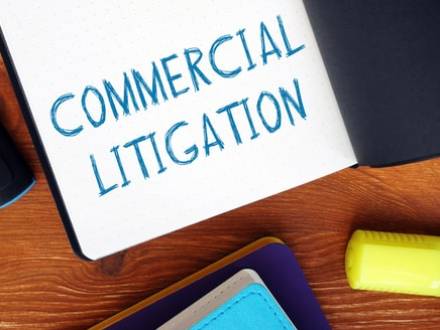 Commercial litigation can challenge any business, potentially impacting operations, finances, and reputation. Getting through these legal waters requires strategic preparation and decisive action to protect your company's interests. An Illinois lawyer can help you with the critical steps to protect your business during commercial disputes.
Commercial litigation can challenge any business, potentially impacting operations, finances, and reputation. Getting through these legal waters requires strategic preparation and decisive action to protect your company's interests. An Illinois lawyer can help you with the critical steps to protect your business during commercial disputes.
Keep Track of All Relevant Documents and Communications
One of the most critical steps in protecting your company during litigation is to implement a comprehensive document preservation strategy:
- Issue a litigation hold: Immediately notify all relevant employees to preserve any documents, emails, or other communications related to the dispute.
- Suspend routine document destruction: Temporarily halt any automatic deletion or destruction of records that may be pertinent to the case.
When Can You Legally Garnish Someone’s Wages?
 Wage garnishment is a legal process that allows creditors to collect debts by requiring a company to withhold a portion of an employee’s earnings. While wage garnishment can be effective, you must understand the legal requirements and limitations surrounding this process. An Illinois lawyer can help you with the circumstances under which wage garnishment is permitted and the steps creditors must take to initiate the process.
Wage garnishment is a legal process that allows creditors to collect debts by requiring a company to withhold a portion of an employee’s earnings. While wage garnishment can be effective, you must understand the legal requirements and limitations surrounding this process. An Illinois lawyer can help you with the circumstances under which wage garnishment is permitted and the steps creditors must take to initiate the process.
Obtaining a Court Judgment
In most cases, a creditor must obtain a court judgment against a debtor before pursuing wage garnishment. This judgment is a formal court order that states the debtor owes a specific amount of money to the creditor. Exceptions to this requirement include certain debts, such as unpaid taxes, student loans, and child support.
To obtain a court judgment, the creditor must file a lawsuit against the debtor and prove the existence and amount of the debt. If the court rules in favor of the creditor, it will issue a judgment that can be used to initiate wage garnishment.
Steps to Take When Facing Insolvency
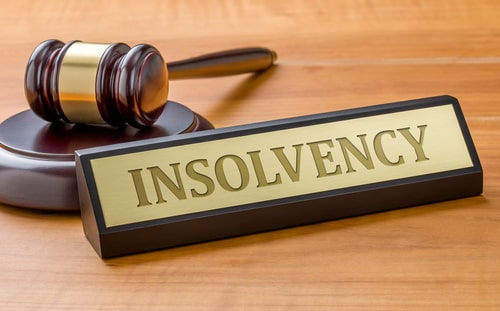 Facing financial difficulties and considering insolvency can be an overwhelming experience. It is important to understand your situation and options so you can take the right steps to protect yourself legally. Financial troubles can sometimes lead to legal issues, so being proactive and informed is important. An Illinois lawyer can help you approach this situation wisely.
Facing financial difficulties and considering insolvency can be an overwhelming experience. It is important to understand your situation and options so you can take the right steps to protect yourself legally. Financial troubles can sometimes lead to legal issues, so being proactive and informed is important. An Illinois lawyer can help you approach this situation wisely.
First, Understand Your Your Financial Situation
The first step is to get a clear picture of your finances. Gather all relevant financial documents, including bank statements, credit card bills, tax returns, and loan agreements. Make a list of your assets, debts, income, and expenses. This will help you determine the severity of your financial situation and explore potential solutions.
Insolvency means that you are unable to pay your debts as they come due. If you have more liabilities than assets or not enough cash flow to cover living expenses and debt payments, you may be insolvent. Common causes include job loss, medical bills, business failure, or overwhelming debt.
Tips for Enforcing Intellectual Property Rights
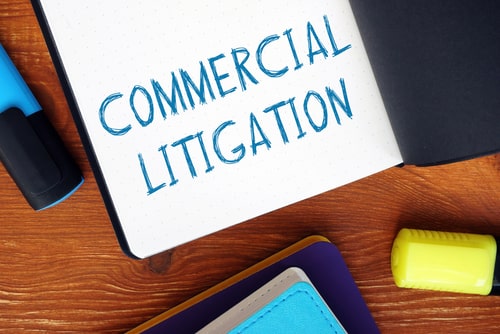 With just about everyone using the internet and various ways people and other business entities can use your graphics and other content, you must consider protecting your intellectual property (IP rights). An Illinois lawyer can help you to enforce these rights.
With just about everyone using the internet and various ways people and other business entities can use your graphics and other content, you must consider protecting your intellectual property (IP rights). An Illinois lawyer can help you to enforce these rights.
Be Sure You Understand Your IP Rights
Before you can enforce your IP rights, it is crucial to have a clear understanding of what they entail. In Illinois, patents protect inventions, trademarks defend brands and logos, and copyrights secure original works of authorship. Familiarize yourself with the specific laws and regulations surrounding each type of IP protection to ensure you are well equipped to defend your rights.
Register Your IP
One of the most important steps in enforcing your IP rights is to register them properly. In Illinois, you can register your trademarks and copyrights with the United States Patent and Trademark Office (USPTO) and the United States Copyright Office, respectively. Patent registration is managed at the federal level, and it is crucial to collaborate with an attorney to steer through the intricate application process.
Handling Disputes Over Business Contracts in Illinois
 As a business owner or executive, you may encounter contract disputes at some point. These disagreements can be stressful and potentially damaging to your company if handled improperly. An Illinois lawyer can discuss effective strategies for resolving business contract disputes in accordance with Illinois law, helping you protect your interests and maintain productive professional relationships.
As a business owner or executive, you may encounter contract disputes at some point. These disagreements can be stressful and potentially damaging to your company if handled improperly. An Illinois lawyer can discuss effective strategies for resolving business contract disputes in accordance with Illinois law, helping you protect your interests and maintain productive professional relationships.
Understand Your Contract
Before taking any action, thoroughly review the contract in question. Pay close attention to the following:
- Terms and conditions.
- Performance obligations.
- Deadlines and milestones.
- Dispute resolution clauses.
Understanding your contract is crucial because it forms the legal foundation of your agreement. It outlines what is expected from all parties involved and provides a roadmap for how to proceed with your business relationship. Paying close attention to the terms and conditions, performance obligations, deadlines, milestones, and dispute resolution clauses can ensure you are well informed about your responsibilities and rights.
Post-Judgment Enforcement in Commercial Debt Collection
 In the realm of commercial debt collection, post-judgment enforcement plays a vital role in ensuring the satisfaction of outstanding debts. When Illinois debtors fail to fulfill their obligations, creditors can use various enforcement methods to recover what is owed. When approaching this kind of situation, there are three potentially effective enforcement tools: wage garnishments, levies, and liens. Understanding these methods is crucial for creditors seeking to enforce their rights and collect outstanding debts. Contact a lawyer to get started on this process today.
In the realm of commercial debt collection, post-judgment enforcement plays a vital role in ensuring the satisfaction of outstanding debts. When Illinois debtors fail to fulfill their obligations, creditors can use various enforcement methods to recover what is owed. When approaching this kind of situation, there are three potentially effective enforcement tools: wage garnishments, levies, and liens. Understanding these methods is crucial for creditors seeking to enforce their rights and collect outstanding debts. Contact a lawyer to get started on this process today.
Wage Garnishments in Post-Judgment Enforcement
Wage garnishment is a legal process that allows a creditor to collect a debt directly from a debtor’s wages in the context of post-judgment enforcement in commercial debt collection:
What is Tortious Interference in Commercial Litigation?
 Tortious interference in commercial litigation is a legal concept that arises when a party intentionally disrupts a contractual or business relationship between two other parties, causing harm. To understand its elements, potential defenses, and the legal consequences tortious interference entails in commercial litigation, contact an experienced lawyer in Illinois to get the legal advice you need at this time.
Tortious interference in commercial litigation is a legal concept that arises when a party intentionally disrupts a contractual or business relationship between two other parties, causing harm. To understand its elements, potential defenses, and the legal consequences tortious interference entails in commercial litigation, contact an experienced lawyer in Illinois to get the legal advice you need at this time.
Further Defining Elements of Tortious Interference
To establish a claim of tortious interference, the plaintiff must demonstrate the following critical elements:
-
The existence of a valid contractual or business relationship
-
The defendant’s knowledge of the relationship
-
The intentional interference by the defendant
-
The absence of justification or privilege for the interference
Three Reasons Why Fee Collection Attorneys Are Helpful

Professional fee collection attorneys are legal professionals who are skilled in the recovery of unpaid fees and debts. Their extensive knowledge and experience in this field make them an invaluable resource for individuals and businesses facing challenges in collecting outstanding payments. If you need assistance in recovering unpaid professional fees, contact a lawyer to make certain your rights are boldly defended.
How a Professional Fee Collection Lawyer Can Help You
-
Extensive Knowledge in Debt Collection Laws and Practices – Professional fee collection attorneys possess a deep understanding of the ever-changing and highly complex laws and regulations surrounding debt collection. Their job is to stay current on the latest legal developments, ensuring their strategies align with the ever-evolving legal landscape. Their knowledge equips them with navigating complex debt collection laws, including the Fair Debt Collection Practices Act (FDCPA), ensuring compliance while maximizing the chances of successful recovery. By leveraging their knowledge, professional fee-collection attorneys can employ effective legal strategies to safeguard their client’s interests and rights
Understanding Debt Collection in Construction Litigation
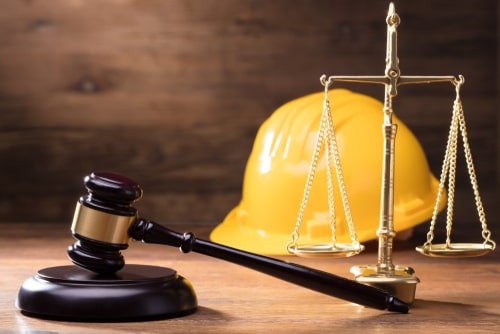 Construction projects can be complex endeavors involving multiple parties and significant financial investments. Unfortunately, disputes and payment issues can arise, leading to the need for debt collection through construction litigation. In Illinois, understanding the legal landscape surrounding this process is crucial for both contractors and property owners alike. If you are interested in obtaining legal representation for debt collection purposes in a construction litigation matter, contact an experienced lawyer to assist you.
Construction projects can be complex endeavors involving multiple parties and significant financial investments. Unfortunately, disputes and payment issues can arise, leading to the need for debt collection through construction litigation. In Illinois, understanding the legal landscape surrounding this process is crucial for both contractors and property owners alike. If you are interested in obtaining legal representation for debt collection purposes in a construction litigation matter, contact an experienced lawyer to assist you.
Mechanic Liens
These powerful tools are available to contractors and suppliers to secure payment for their work or materials. In Illinois, the Mechanics Lien Act provides a legal framework for filing and enforcing these liens. To protect their rights, contractors must adhere to specific notice and filing requirements within strict timeframes. On the other hand, property owners should be aware of the potential risks associated with mechanics liens and take proactive measures to mitigate them.






